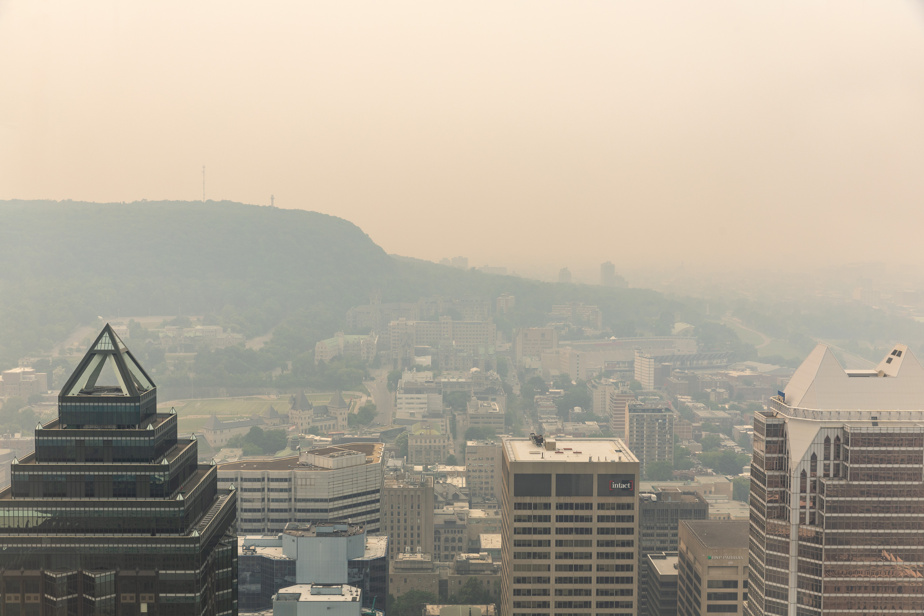“Pure air for blue skies.” Until recently, this international day established by the United Nations (UN) in 2019 may have seemed far from the concerns of Quebecers. After all, Quebec is not Lahore (Pakistan) or New Delhi (India), where air quality was among the five worst cities in the world in 2022.
The nickel issue, that of the Horne Foundry and this summer’s historic forest fires, however, have suddenly put, this year in particular, air quality at the forefront of national news, exposing thus the limits of our collective knowledge and government responses. Now that most forest fires are under control in the territory, it is time to take a deep breath and take stock of certain elements related to this crucial issue.
Most of the time, we forget that every day we breathe a cocktail of air pollutants that impact human health. Health Canada reports 4,000 premature deaths per year in Quebec associated with air pollution.
Indeed, the World Health Organization (WHO) recently revised downwards its guidelines on the levels beyond which the concentrations of multiple air pollutants are associated with significant risks for public health, in order to encourage governments to tighten their air quality standards.
In Quebec, air quality monitoring is governed by the Environment Quality Act (EQA). The data collected by the Ministry of the Environment, the Fight against Climate Change, Wildlife and Parks (MELCCFP) is used in particular to calculate an air quality index (AQI), by sector and region, in order to continuously inform the population according to a classification that indicates whether it is good, acceptable or poor.
However, the reference values used to assess the AQI are not consistent with the latest WHO recommendations and therefore do not represent the real risk associated with exposure to air pollutants.
Furthermore, while some countries are currently revising their national standards accordingly, the MELCCFP recently affirmed that it has no plans to review the current Quebec standards… which date from 2011 and allow concentrations of air pollutants higher than the Quebec guidelines. the WHO.
However, well before this summer’s forest fires, an analysis conducted by the AQME of data from 37 air quality measuring stations across Quebec in 2021 shows that 33 of them (92%) exceed the WHO guideline value for the annual average concentration of fine PM2.5 particles, which “designate aerosols suspended in the air in solid or liquid form [and whose] composition depends on their origin, the season and atmospheric conditions”.
Issues related to air quality are becoming increasingly important due to the negative effects of climate change. The doctors who participate in the AQME are able to see the impacts of poor air quality on the health of patients: more and more, they talk about it spontaneously during follow-ups, sharing their concerns in this regard.
On this International Day of Clean Air for Blue Skies, we believe that new air quality standards, an overhaul of the AQI as well as an air quality management program robust and systematic are required.
More specifically, we believe it is important to modify the evaluation thresholds and the terminology used in determining air quality. Government authorities must optimize communication efforts regarding the risks linked to air quality in order to better inform the general public, and more preventive measures must be recommended. We believe that we would all benefit from being better informed about what we breathe every day. Let’s ensure healthy air for all of Quebec.


















